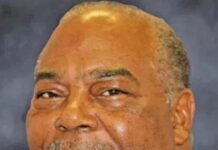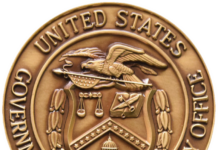 Last week a JBHE post reported that 67 percent of all students who entered a group of the nation’s largest universities in 2013 earned their degree by 2019. For Blacks at these institutions, only 48 percent earned a bachelor’s degree within six years.
Last week a JBHE post reported that 67 percent of all students who entered a group of the nation’s largest universities in 2013 earned their degree by 2019. For Blacks at these institutions, only 48 percent earned a bachelor’s degree within six years.
Now we turn our attention to student athletes. These are students who are receiving some degree of athletic financial aid or scholarships. Some 69 percent of all student athletes who enrolled in 2013 graduated within six years. This is only two percentage points higher than the graduation rates for students as a whole. For Black student athletes, 59 percent earned their diplomas within six years. This is 11 percentage points higher than the rate for Black students as a whole.
Past research has shown that as many as two thirds of all students who drop out of college do so for financial reasons. Thus, it appears that athletic scholarships tend to shield student athletes from the financial pressures of the high cost of education. And this is particularly true for Black student athletes.
The numbers are not insignificant. There are nearly 11,000 Black men on football scholarships at these large universities. More than 2,500 Black men and more than 2,000 Black women are on basketball scholarships. Nearly 4,000 African Americans receive athletic scholarships for track or cross country.










As I see it, it’s not good enough for a bare majority of our student athletes to complete their degree programs.
The far more important questions are whether they are choosing their majors wisely. That is, whether they are taking useful or worthwhile courses, and are benefitting from these courses when they leave sports to compete in the real world like the rest of us.
If many are taking subjects like psychology, geography, marketing and African-American history, they must be facing hard lives.
It’s quite evident many people are happily ignorant on the importance of academic majors such as “psychology, geography, marketing and African-American history” (let’s not forget “African and especially Caribbean studies”, right!) in how intertwined they are within national and international landscape. Case in point, ask the people at Google the importance of geography and marketing in reference to their survivability and overall profit margin. Once again, people without qualification continue to happily display their educational ignorance.
Well said, Michael! Others should stick to what they know…
This article points out the continued inequities that exist among minority student populations (i.e. African Americans). The issues are complex, however, if one drills down the various factors that are contributing to the lower degree completion rates among African American college students compared to their white counterparts. Having been a faculty athletic advisor, I know that the potential for student athletes to be provided specific academic support services is somewhat higher because of the coaches who can encourage and monitor their academic activities outside the playing field. This doesn’t mean that holistic and systemic initiatives are necessary to address the degree completion inequities.
Yes, student-athletess should be graduating at a higher rate. But are the universities/colleges that recruit them doing their part to make sure the athletes are also students — students who will have a quality education that will do them, and society, well in the many years after their playing days are over?
Until the majority of so-called Black American student-athletes VALUE education with same vigor as they do ‘running up and down the court or gridiron’ these abysmal graduation rate will continue.